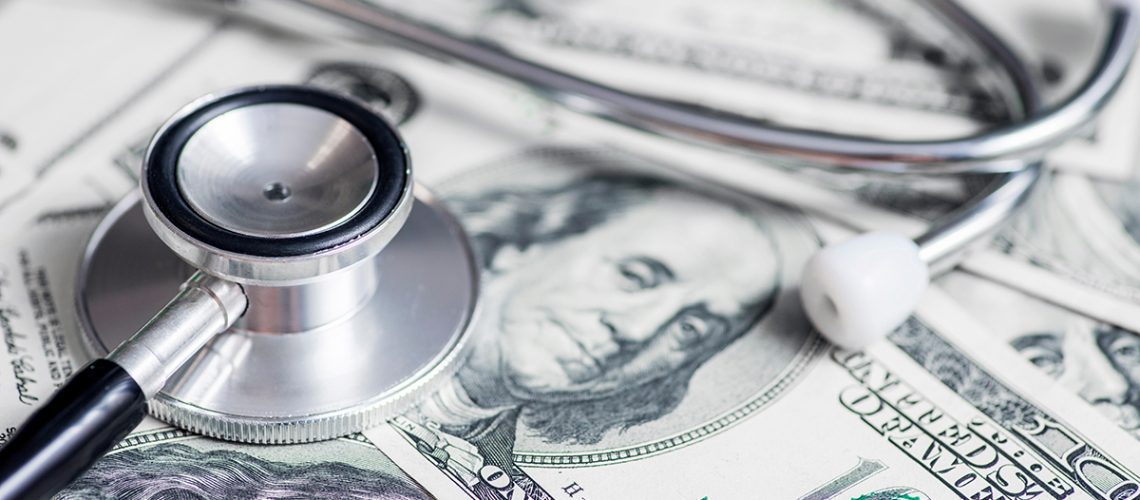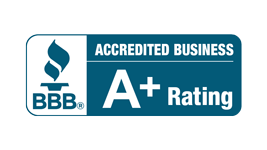Medical Debt Issue in Dayton
Medical debt is a growing issue in Dayton, as many residents struggle with high healthcare costs, even with insurance coverage. Unforeseen medical emergencies, high deductibles, and out-of-pocket expenses can quickly lead to financial strain.
Medical debt can include hospital stays, doctor visits, prescriptions, and procedures. It can arise even with insurance coverage due to high deductibles, co-pays, or non-covered services. Individuals are often left with substantial bills despite having health insurance.
In Dayton, medical debt is driven by high healthcare costs, especially for those without comprehensive insurance. 35% of Ohio adults have struggled to pay their medical bills, including: [1]
- 15% contacted by a collection agency
- 11% used up all or most of their savings
- 10% unable to pay for basic necessities like food, heat, or housing
In 2023, 6.1% of Ohio’s population was uninsured, which is 697,600 people. [2] Combined with rising medical expenses, creates a financial burden on individuals and families. Local hospitals, physicians, and clinics may charge high fees, leading to significant debt even after insurance payments.
2. Talk to providers about resolving medical debt
3. Apply for medical aid if eligible
4. Get professional support (financial counselor, bankruptcy lawyer, etc.)

Assessing Your Dayton Medical Debt
To effectively manage medical debt, it’s necessary to first understand the full extent of what you owe.
Create a List of Outstanding Debts
Start by gathering all your medical bills. Review each one carefully to ensure you have an accurate list of amounts owed. Include bills from hospitals, doctors, specialists, labs, and pharmacies. Organize them by due dates and amounts to understand the full scope of your debt.
Understand the Details of Each Bill
Break down each bill to ensure that the charges are accurate. Look for errors such as duplicate charges, incorrect billing codes, or services you didn’t receive. Verify what your insurance has covered and whether any services were billed incorrectly. If you’re unsure about any item, don’t hesitate to contact the provider for clarification.
Negotiating Your Bills in Dayton
Negotiating your medical bills is a key step in managing debt. Many providers are willing to work with you, whether through discounts, payment plans, or financial assistance programs.
Contact Providers for Financial Assistance
Reach out to hospitals, clinics, and other healthcare providers directly to discuss your bills. Many providers offer financial assistance programs or are willing to work with patients to reduce costs or set up payment plans. Be prepared to explain your financial situation and ask if they can offer any discounts or adjust charges.
Setting Up Payment Plans
If paying the full amount at once isn’t possible, request to set up a manageable payment plan. Most healthcare providers are willing to arrange monthly payments, often without interest or fees. Ensure that the terms are clear and within your budget. If you’re unable to pay the full balance, ask if they can reduce the monthly amount or offer longer repayment terms.

Exploring Insurance and Government Programs
Understanding your insurance options and available government assistance can significantly reduce medical debt. There are programs designed to help lower-income individuals or those with inadequate insurance. Exploring these options may help you cover outstanding medical costs or prevent future financial strain.
Affordable Care Act (ACA) and Medicaid
If you don’t have insurance or are underinsured, check if you qualify for Medicaid or other ACA programs. These programs offer coverage for low-income individuals and can significantly reduce out-of-pocket expenses for medical care.
Seeking Financial Counseling & Legal Help
When medical debt becomes overwhelming, seeking professional assistance can provide guidance. A bankruptcy attorney can help you understand how bankruptcy may offer relief from medical debt and provide a fresh financial start.
Finding Local Credit Counseling Services
Credit counseling agencies can assist in creating a budget and negotiating payment plans, but they cannot offer the legal protections or debt discharge that bankruptcy can provide. If medical debt is substantial, it’s necessary to understand the legal options available, as credit counseling may not resolve significant debt.
When to Consult a Bankruptcy Attorney
If medical debt has become unmanageable and other options, such as payment plans, are no longer viable, bankruptcy may be the best solution. A bankruptcy attorney can explain how filing for Chapter 7 or Chapter 13 bankruptcy can discharge medical debts, stop creditor harassment, and allow for a fresh financial start. Bankruptcy provides a structured way to handle medical debt and helps individuals regain control of their finances.

Preventing Future Medical Debt in Dayton
Taking proactive steps can help reduce the likelihood of accumulating more medical debt in the future. By planning ahead and being mindful of healthcare costs, you can avoid financial strain down the road.
Planning for Future Healthcare Costs
Consider setting up an emergency fund specifically for medical expenses. This can help cover unexpected costs, such as medical treatments or procedures not fully covered by insurance. Staying on top of regular check-ups and preventive care can reduce the likelihood of needing costly emergency care.
Evaluating Insurance Options
Regularly review your health insurance plan to ensure it meets your needs. Pay attention to changes in premiums, deductibles, and coverage options each year. If your current plan doesn’t provide adequate coverage, consider exploring other plans during open enrollment periods. Having a plan that covers necessary medical services can help you avoid high out-of-pocket expenses.
Coping with medical debt in Dayton can be challenging, but there are steps you can take to regain control of your finances. By negotiating with providers, exploring insurance options, and seeking professional help, you can reduce the burden of medical debt.
If you are in medical debt in Dayton and are considering bankruptcy, contact Richard West today!
FAQs
If you are unable to pay your medical bills, start by carefully reviewing each bill for errors. Contact the healthcare provider to discuss payment options or set up a payment plan. Many providers offer financial assistance programs or are willing to reduce the amount owed. You can also explore local resources or government programs that may help, such as Medicaid or assistance from charitable organizations.
Yes, medical debt can be discharged in bankruptcy. Both Chapter 7 and Chapter 13 bankruptcy can provide relief from medical debt. Chapter 7 bankruptcy allows for the complete discharge of qualifying medical debt, while Chapter 13 bankruptcy may involve a repayment plan based on your income and financial situation.
Medicaid eligibility in Dayton is determined by factors like income, household size, and certain medical conditions. If your income is at or below a certain level, you may qualify for Medicaid. You can apply online through the Ohio Benefits portal or contact the Montgomery County Job and Family Services for assistance with your application.
Yes, you can negotiate your medical bills. Contact your healthcare provider or hospital billing department to discuss payment options, discounts, or a payment plan. Some providers may offer discounts for uninsured patients or allow you to pay in installments.
To avoid future medical debt, consider setting up an emergency fund for healthcare costs and review your health insurance plan regularly to ensure it covers your needs. Preventive care, regular check-ups, and staying on top of your health can also help reduce the risk of unexpected medical expenses. If possible, also explore Health Savings Accounts (HSAs) to save for medical costs tax-free.
If your medical debt is sent to collections, it’s important to act quickly. Review the debt to ensure it’s accurate and that the collection agency has the correct information. You can negotiate a payment plan or, if necessary, consult a bankruptcy attorney to explore whether filing for bankruptcy might be a viable solution. Communicate with the collections agency to avoid further negative consequences.
A Health Savings Account (HSA) allows you to set aside money tax-free to pay for qualified medical expenses. If you have a high-deductible health plan, an HSA can help cover out-of-pocket medical costs, including those that insurance doesn’t fully cover. Contributing to an HSA each year can help build a fund for future medical expenses and reduce the likelihood of accumulating medical debt.
Sources:
[1] Altarum – Healthcare Value Hub. (n.d.). https://www.healthcarevaluehub.org/advocate-resources/publications/ohio-residents-struggle-afford-high-healthcare-costs-support-range-government-solutions-across-party-lines
[2] Election 2024: State Health Care Snapshots | KFF. (2024, September 30). KFF. https://www.kff.org/statedata/election-state-fact-sheets/ohio/



